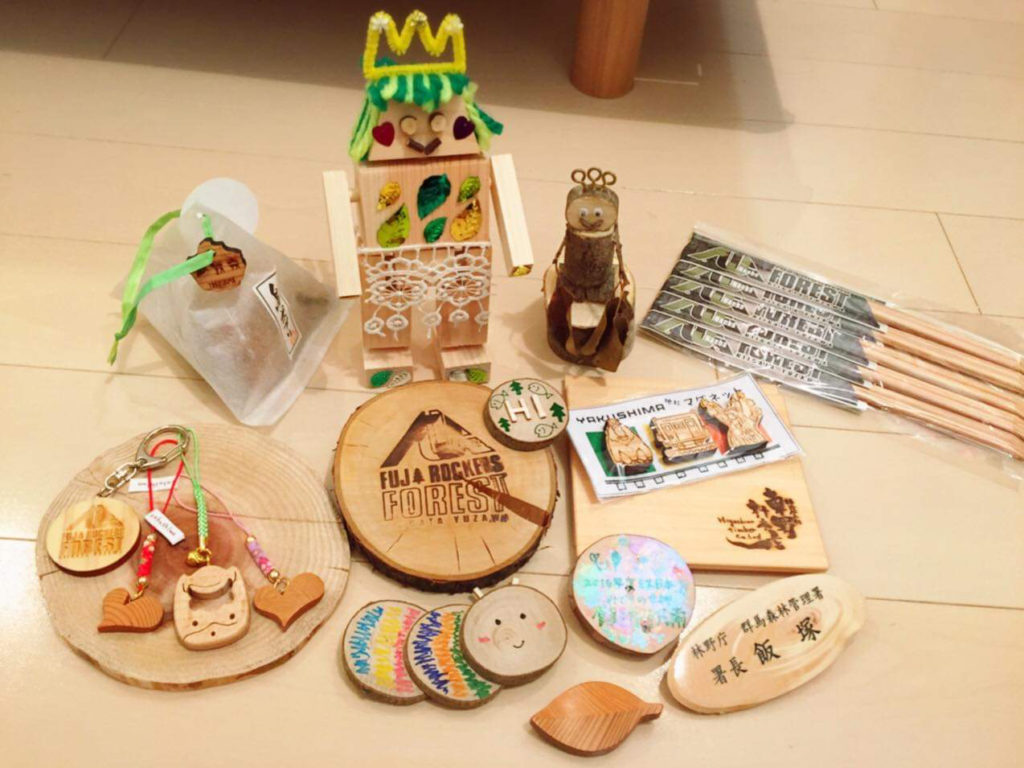From Miss Japan to Freelance Producer: An Interview with ID15 ICU graduate Honami Iizuka Part 2
In Part 1 of our interview with ICU graduate Honami Iizuka, she talked about her experiences as a student at ICU and her work at the University of Creativity (UoC).
In Part 2, we dived into her activities as a Miss Japan Greenery for Life award winner and a member of the Miss Japan Management Committee.
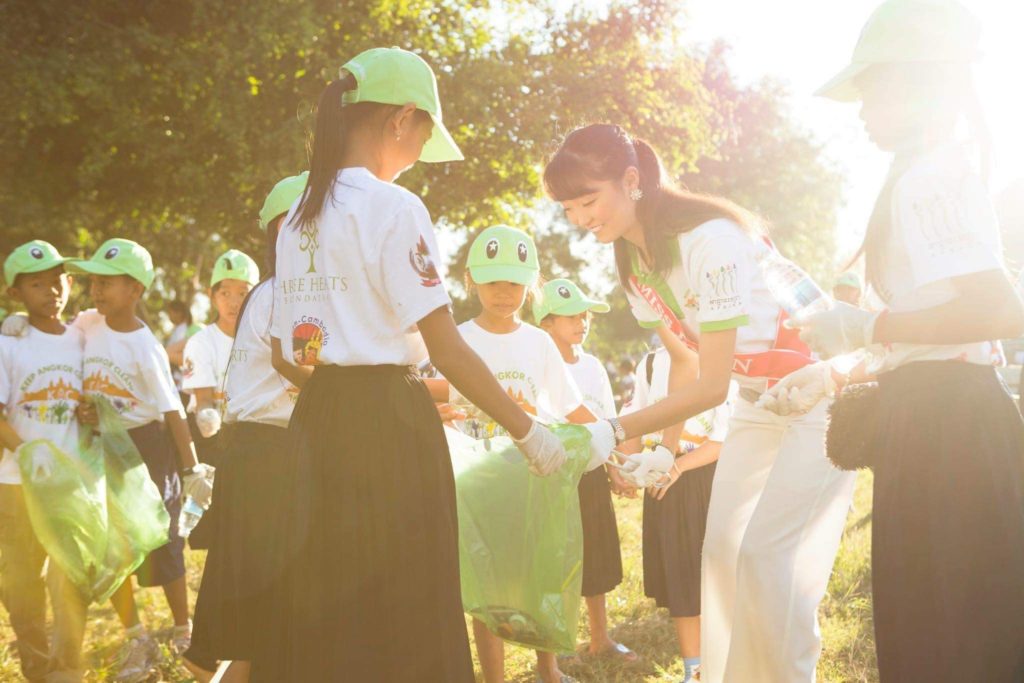
Q1. Please tell us about the Miss Japan Contest.
Miss Japan is one of the oldest contests in Japan. The Greenery for Life winner works closely with the Forestry Agency of the Ministry of Agriculture, Forestry and Fisheries to spread awareness in Japan and abroad about Japan’s forestry. At the 2016 G7 Ise-Shima Summit, I made a presentation about Japan and nature to the spouses of the leaders of each country, and guided them around Ise Jingu. I also worked on promoting Greenery Month and the Green Feather Campaign with ex-Prime Minister Abe and acted as a panelist and moderator in many symposiums and talk shows. Due to my interests in international relations, I was able to work inside and outside Japan, participating in over 150 events and activities in 24 prefectures and four countries, setting a record for the most number of active days in the Miss Japan Contest. I also starred in the Miss Japan 50th anniversary documentary film, “夢こそは、あなたの生きる未来” (Dreams are a Future You Live In).
I was appointed to one of the starting members of the Miss Japan Management Committee that was founded in June 2019, and I’m currently involved in managing and improving the contest. The support work I do ranges from branding, to collecting sponsors, to training finalists, as well as serving as the youngest ever contest judge.
Q2. Sounds like a wonderful contest! Why did you decide to apply?
Please have a look at this article! (Japanese only)
https://www.missnippon.jp/entry/
Miss Japan is a contest that allows you to gain valuable experience and broaden your horizons. Don’t be afraid to challenge yourself and try it out!
Q3. How did you feel when you won the award?
I was very pleased because I’d really put forward everything I had as the culmination of my life so far. To express all my past experiences, my abilities, my passion, and everything I loved in one place was a valuable experience that prompted me to reflect on myself and perhaps give back to all the people who had supported me.
When I won the award I didn’t have any special knowledge on forestry and woodlands; I really had no clue. So at the start I went out to the actual sites and learned the basics of the industry. I focused on enjoying the work, asking lots of questions and gaining knowledge. By noticing and analysing the problems the industry faces for myself, I was able to grasp an overview of the industry and talk about it in my own words.
After that period of learning, my activities became centred around output, such as talking at events and symposiums. I adjusted the content depending on the audience, which ranged from experts to the average consumer, from mothers to preschool children. The critical and interdisciplinary thinking skills I acquired at ICU really came in handy during this process.
Q4. Forestry is closely related to the SDGs. What are some problems Japan’s forestry industry faces?
During my time as Miss Japan, I felt that there were two major problems.
Firstly, it isn’t widely known that trees need to follow a certain cycle. Many people assume that cutting trees is bad for the environment, but this is not true, because trees follow an important lifecycle (plant→grow→cut→use). In fact, many trees in Japan are reaching their felling stage. A lot of them were planted after World War II, but once trees turn about 60 years old, they are unable to absorb any more carbon dioxide, and grow “fat.” It’s vital that those trees are felled and used to be replaced with new trees as part of the cycle. To achieve this, we need your help to increase the demand for domestically produced wood. The development of technology has widened the usage of wood; apart from houses and furniture, it can be used for surfboards, cars, clothes, and shoes. Using wooden chopsticks can actually be good for the environment because they often use thinned wood. Trees have so much potential, and I hope everyone will find ways to use more wood in their daily lives.
The second problem is the ageing and masculinisation of the forestry industry. Contrary to popular belief of forestry work as rough and physical, it is actually being steadily mechanised. To demonstrate that a woman like me can do the job, and to show how fun and exciting it can be, I obtained a license for a forestry vehicle and chainsaw and went out to demonstrate at machinery exhibitions and forestry sites, as well as participate in actual logging. I don’t even have a driver’s license, but I was able to drive a tractor! Tractors can easily move objects ten metres away with the push of a button, so it really expanded my range of abilities. I felt strong, like a robot, and it was really fun! I particularly enjoyed putting my chainsaw skills to the test by participating in a logging championship with other foresters. Overall, I did a wide range of PR work to integrate more women and young people into the industry.
Q5. When did you feel a sense of achievement?
I felt accomplished when I had a great time doing hands-on work with foresters out in the field, and when my audiences were able to feel a sense of familiarity with me.
Pageant winners often seem removed from ordinary life, but this conception becomes a problem when trying to fulfill my duties as Miss Japan.
I believe that the Miss Japan Greenery for Life winner is a spokesman for the forestry industry, and I made it my mission to spread awareness on that matter during my one-year term. It was important to hear out everyone’s honest feelings, so I needed to gain their trust out in the field and become a part of them. That’s why I felt a sense of achievement when we worked hard together and laughed together, when I felt that they were open and honest to me.
I also needed to make their voices heard to the audience. No matter how eloquently I talk to people who don’t have an interest in forestry, they won’t get the message if they don’t relate with me, so I tried to emphasise how I was an average consumer just like them. I felt a sense of accomplishment when it worked and the audience was able to be frank with me.
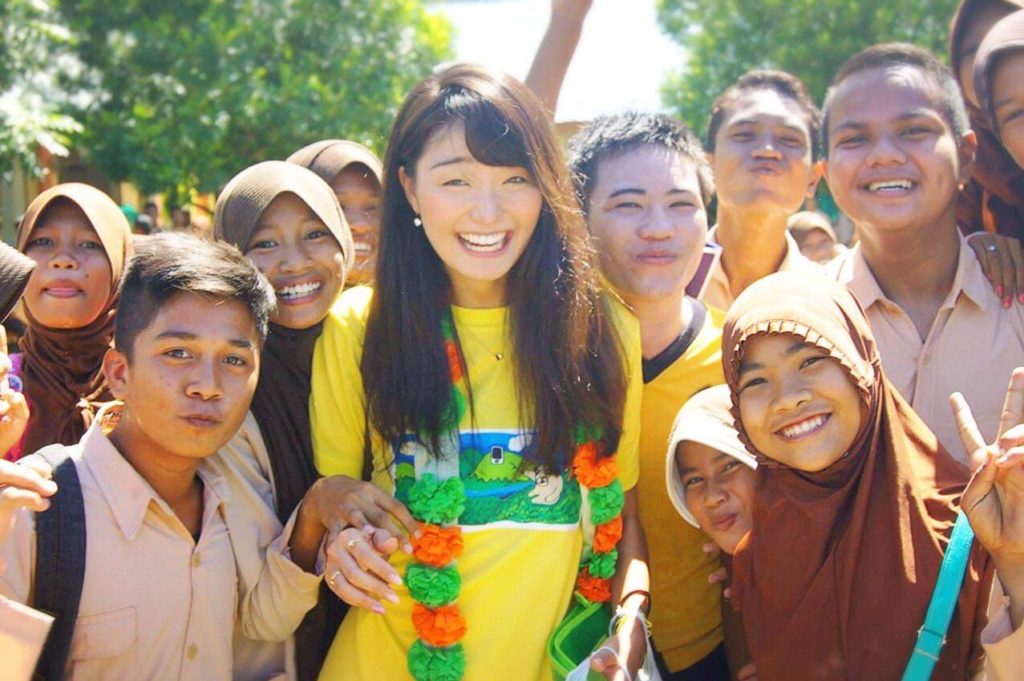
Q6. So it’s a contest that supports women advocating for social issues.
That’s right. Its mission is to nurture the next generation of leaders in Japan, so all sorts of people who play an important role in society participate, such as doctors, politicians, office workers, artists, and actresses.
One great thing about Miss Japan is that we usually work closely with the government to do public work. It lets the winners do activities that play on their strengths, interests, and unique characteristics. For example, I was able to speak English and always talked about my interest in international relations, so I was involved in activities that made use of those, such as speaking at the G7 Ise-Shima Summit and COP13. This year’s Greenery for Life winner is a good singer, so she holds concerts out in the forests and posts songs on the Forestry Agency’s YouTube channel. Even the same award allows for a diverse range of activities, which is quite amazing.
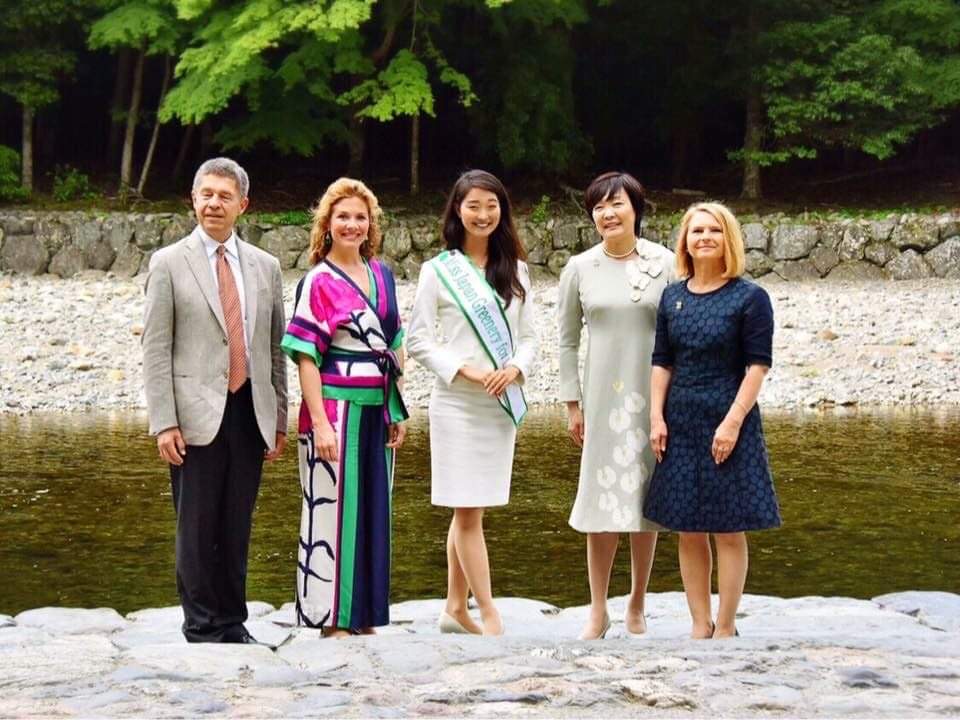
Q7. We can see that ICU’s liberal arts education is coming in handy for you after graduation.
ICU has nurtured my ability to view things from different perspectives, to form my own opinions, and to live zealously, which are all valuable skills in society.
I really love ICU – it has made me who I am today, and ICU’s liberal arts education has trained me well in many ways.
There is a lot of freedom with everybody entering the same College of Liberal Arts, but that also means you have to plan your own path from freshman year. With three registration periods each year, we are required to reflect on our choices and goals. Freedom comes with having responsibility over your own choices and actions. This cycle of reflection helped me get into the habit of thinking for myself.
ICU’s programs offer a wide variety of opportunities outside of class, such as service learning, club activities, academic conferences, dormitory living, and studying abroad, but I always kept in mind that it’s up to each one of us to grasp those opportunities. I hate feeling regretful through seeing what others are doing, so while I was constantly at maximum capacity, never really slowing down, I was always on the lookout for valuable opportunities and was able to lead a fulfilling student life. When you start working, opportunities don’t come flowing in like that. Being proactive in obtaining information and grasping chances can alter your life, so the skills I learned in ICU are a valuable asset for me today.
Lastly, I want to share something I heard a professor say in class, which I remember well and think about often: “Don’t believe everything I say is true. Always be critical of my words.” This is what critical thinking is about. In an age where we are surrounded by information, the ability to discern which information to believe in and act upon is very important.
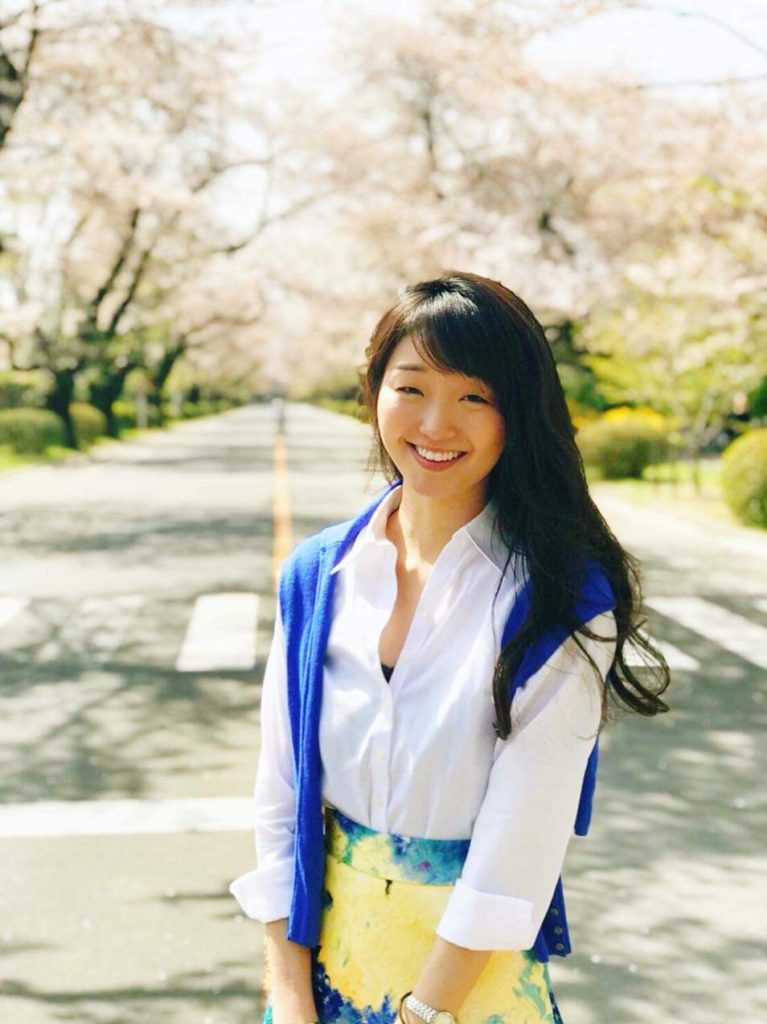
Q8. Do you have a message for ICU students?
Many students express their concerns to me that their minority status as an ICU student will work against them, but you would be surprised by the number of ICU graduates, despite their small population, who are excelling in society. Through my work as Miss Japan and at UoC, I’ve met countless amazing people working at the forefront, including many ICU graduates. ICU has such a strong presence in society despite being a small community, and it’s truly a joy when I get to meet fellow alumni! Hierarchies don’t really matter, because everyone greets you with a sense of camaraderie, so I hope you will be able to utilise that to its full extent!
My next advice, unrelated to ICU, is this: Dreams are a future you live in. Always have a dream, and say it out loud.
When I was Miss Japan, I was asked who I considered beautiful. I couldn’t answer straight away, but thought about it for a while, and came to realise that people who strive daringly towards their dreams are beautiful. Out of the many people I’ve met, those with dreams are always bright and full of life with an aura that naturally attracts people. That’s why I want to keep dreaming big and be playful no matter my age (which is easier said than done!). Dreams can change anytime, but without it nothing will start. I hope you will keep that in mind.
It’s also vital that you voice your dreams. When I was a student I wanted to work in an international organisation, and by telling other people, I was able to work at an international relations-related thinktank in New York and take on international jobs at the Summit and COP13 as Miss Japan. I understand it may be embarrassing, but letting other people know will double your chances, and raising the expectations of those around you can prompt you into action. Your own resources are limited, so rather than keeping it inside of you, try saying it out loud!
Q9. Please tell us about your future goals!
As a founding member of UoC, I’d first like to increase our visibility in society and create positive social impact through the power of creativity.
We have a large number of participants already, but I would also like ICU community members to join in and create social change through the use of creativity.
We are planning to take applications for seminars and hold online sessions, so I look forward to seeing you at UoC! Akasaka Campus is a unique and fun place, so I hope to see you there soon!
Q10. Any final comments for ICU students?
Due to the coronavirus, many of you are unable to live the college life you envisioned. This crisis, however, will go down in history and be a great learning platform, especially since you get to experience it first-hand.
It is in times like these that liberal arts education and critical thinking skills become indispensable in society.
You are the next-generation leaders of the ‘new-normal,’ and this is the perfect chance to change the future with your own hands. Isn’t it exciting that what used to be taken for granted is now being questioned, and what awaits us tomorrow is continuously being overwritten?
I hope you will create your own futures using the power of creativity, by adopting a positive mindset and utilising your valuable position as students in these unprecedented times.
A bright future is waiting for you.
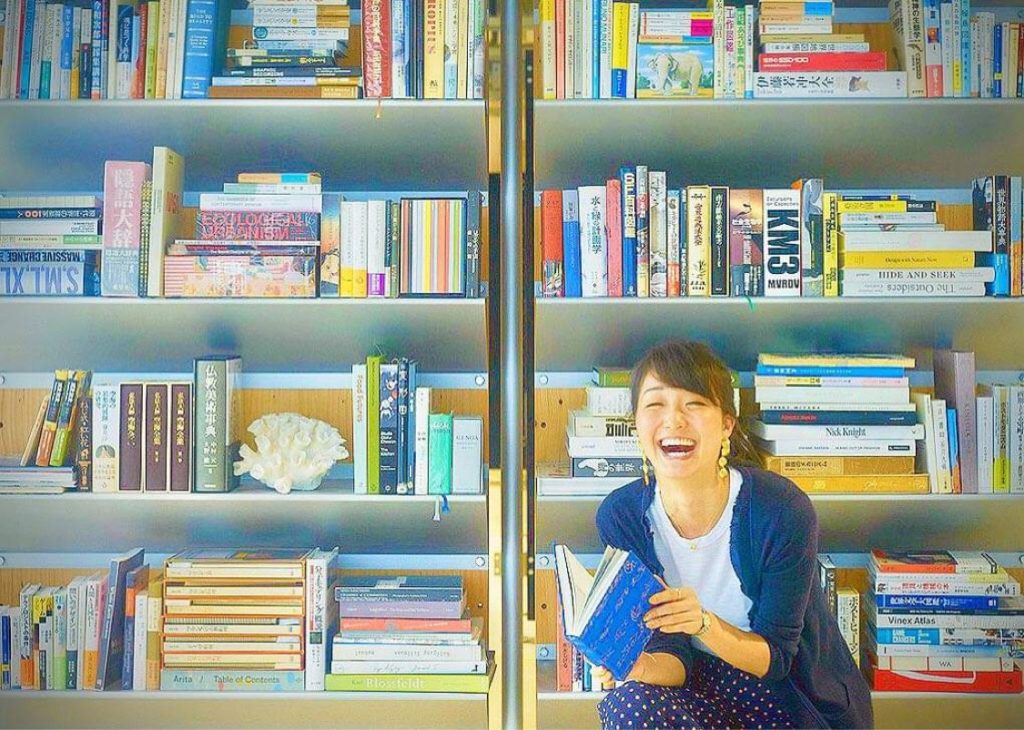
Instagram:https://www.instagram.com/honami_iizuka/
Facebook:https://www.facebook.com/honami.iizuka/
Miss Japan
Website: https://www.missnippon.jp/entry/
Instagram: https://www.instagram.com/missjapanofficial/ https://www.instagram.com/missjapan_management_/

